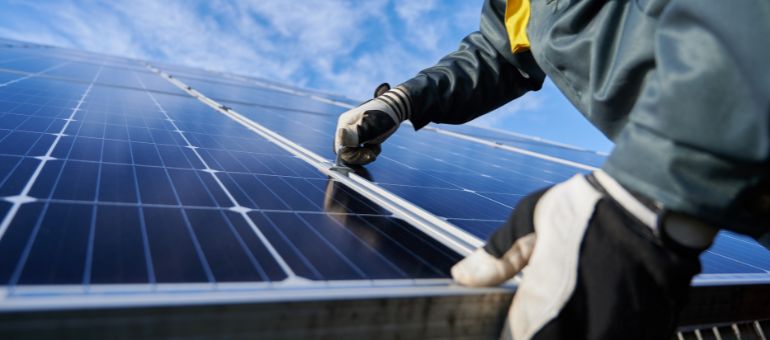There are many factors to consider when it comes to solar energy.
Is solar worth It?
The cost of solar panels for your home has never been cheaper now that the Inflation Reduction Act was signed. You can get a 30% tax credit on solar panel installation for your home through 2032. But should you make the solar switch? There are a lot of things to consider!
Benefit for the environment
Solar is renewable energy, which means less pollutants are being put into the air. You're reducing the amount of electricity that needs to be transferred across the power lines as well.
Solar energy lowers the stress on the electricity grid because most solar energy stays in the area where it's created. That means it doesn't need to be transmitted over long distances. The power lines then get a breather when demand is at its peak.
The cost
There’s no one-size-fits-all when it comes to price. The upfront costs can cover everything from the panels, cables, wiring, metering equipment and labor expenses. The good news is that you start seeing savings from the minute you install solar panels on your home. Experts say installation can pay for itself in five to ten years if you live in a sunny part of the country.
If you live in a cloudier area and have higher utility bills, it could take 10 to 20 years. The type of panels you get, how many you get, etc., determines your upfront cost of getting solar on your house. You can cut down that cost by thousands of dollars with federal, state and local tax credits. In most states, you can get thousands of dollars taken off.
The monthly benefits
The major benefit to getting solar panels is that you’re offsetting your electricity bill. You’re cutting down that monthly bill, getting it lower and lower. By how much depends on where you live, how much sun your roof gets, how many panels you have, what the monthly cost of your electricity usage is, etc. Most people don’t want to go completely off the grid, so you’re still connected. Your house may need to draw power from the grid when the panels can’t generate enough electricity, like on a cloudy day or at night.
But what if your house is converting more energy than what you're actually using? You can either store it or send it back. With your solar installation, you can buy a storage battery that will keep whatever you're not using. That way on cloudier days or at night when you need more electricity, you can draw from it.
It can also be a generator if the power goes out. In most states, you can also send excess electricity back to the grid for your area. They're called Net-Metering Programs. Whatever you don't need, you send it back to the grid for credit on your monthly electric bills. If this is something that appeals to you, make sure your local or state government allows for sending solar back.
Find out if solar is right for you
The cost and how useful solar is can vary from house to house! Only you can decide if it’s right for you. Google has a website called “Project Sunroof.” You put in your address, and it uses Google Earth Imagery to analyze your roof and local weather patterns. It will calculate your average electric bill and how much money you could save if you went solar. Looking down the road, solar panels may increase the value of your home as well.

